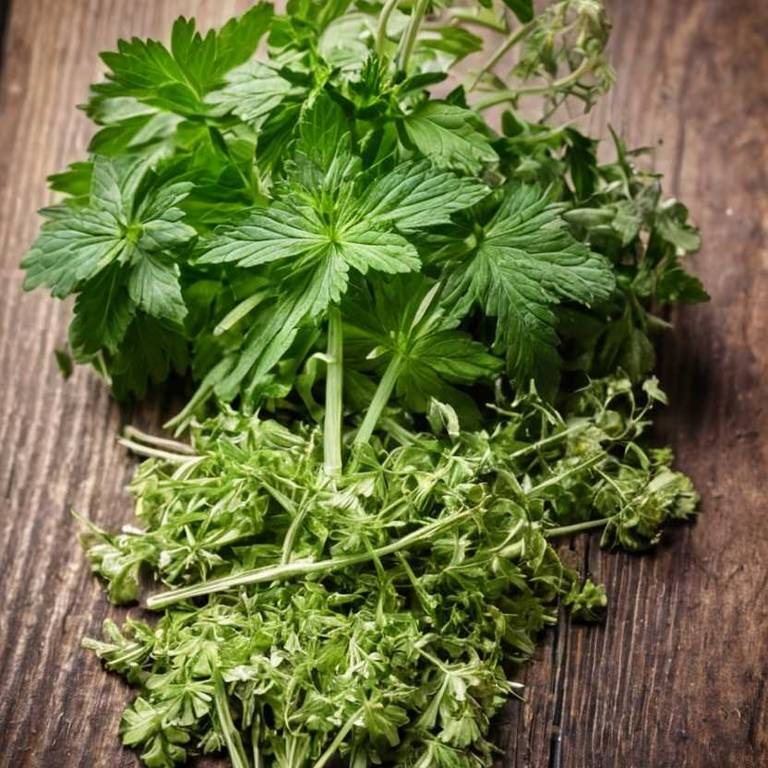By Leen Randell
Updated: Jul 06, 2024
What Are The Medicinal Properties Of Angelica Archangelica (Angelica)?

Angelica archangelica, also known as angelica, has health benefits such as anti-inflammatory and antioxidant properties.
The herb is rich in medicinal constituents including volatile oils, flavonoids, and phenolic acids, which contribute to its therapeutic effects. It is often prepared as a tea, tincture, or infusion, and is traditionally used to treat digestive issues and respiratory problems. Possible side effects include allergic reactions and interactions with blood-thinning medications.
When using angelica, it is essential to consult with a healthcare professional, especially for individuals with pre-existing medical conditions or taking prescription medications.
This article explains the health benefits, active constituents, medicinal preparations, possible side effects, and precautions related to Angelica archangelica.
- What are the health benefits of Angelica archangelica?
- What are the active constituents of Angelica archangelica?
- What are the medicinal preparations of Angelica archangelica?
- What are the possible side effect of using Angelica archangelica improperly?
- What precautions to take when using Angelica archangelica medicinally?
What are the health benefits of Angelica archangelica?
Angelica archangelica, also known as angelica, has health benefits such as reducing inflammation and alleviating symptoms of irritable bowel syndrome.
Its roots and stems contain compounds with antimicrobial properties, which can aid in fighting off infections. The plant has also been traditionally used to treat digestive issues, including bloating and gas.
Additionally, it is said to have antiseptic and anti-inflammatory properties, which can aid in wound healing.
Here's a detailed article about the 10 health benefits of Angelica archangelica.
What are the active constituents of Angelica archangelica?
Angelica archangelica, also known as angelica, has active constituents such as volatile oils, flavonoids, and phenolic acids, which contribute to its medicinal properties.
The root and rhizome of the plant are rich in angelic acid, a lignan, and also contain sesquiterpenes and terpenoids.
These constituents are responsible for the plant's anti-inflammatory, antimicrobial, and antispasmodic effects, making it a traditional treatment for various health conditions, including digestive issues and respiratory problems.
Here's a detailed article about the 10 active constituents of Angelica archangelica.
What are the medicinal preparations of Angelica archangelica?
Angelica archangelica, also known as angelica, has medicinal preparations such as essential oil, extracts, and tinctures.
These preparations are used to treat various ailments, including digestive issues, menstrual cramps, and respiratory problems. The essential oil, rich in volatile compounds, is used in aromatherapy to relieve stress and anxiety.
Extracts and tinctures are used in herbal remedies to soothe the digestive system and alleviate symptoms of colds and flu.
Here's a detailed article about the 10 medicinal preparations of Angelica archangelica.
What are the possible side effect of using Angelica archangelica improperly?
Improper use of Angelica archangelica, also known as angelica, increases the chances of experiencing side effects such as gastrointestinal problems, including nausea, vomiting, and diarrhea, due to its high inulin content.
Excessive consumption may also cause dizziness, headaches, and skin rashes.
Moreover, interactions with certain medications, such as blood thinners and diabetes medications, can occur, highlighting the importance of consulting a healthcare professional before using angelica.
Here's a detailed article about the 10 most common side effects of Angelica archangelica.
What precautions to take when using Angelica archangelica medicinally?
Before using Angelica archangelica, also known as angelica, for medicinal purposes, you must take precautions such as consulting with a healthcare professional, especially if you have liver or kidney disease, or are taking blood thinners.
Additionally, pregnant or breastfeeding women should avoid using angelica due to its potential to stimulate the uterus and interact with hormonal medications.
Proper dosing and preparation are also essential to minimize the risk of adverse effects.
Here's a detailed article about 10 precautions to take when using Angelica archangelica.